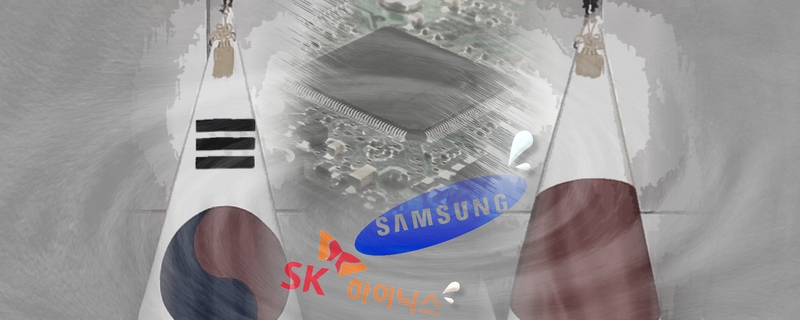Posted on : Jul.17,2019 17:50 KST
Modified on : Jul.17,2019 17:59 KST
Japanese firms reject meeting proposal from Samsung electronics vice chairman
While the Blue House is intensifying its rhetoric about Japan’s export controls to put more pressure on Tokyo, the South Korean semiconductor industry is straining to stay on Japan’s good side. Companies in the industry are obliged to scrape together a substantial supply of the three materials whose exports are being restricted, including high-purity hydrogen fluoride, amid concerns that worsening relations between the two sides will lead to even tighter restrictions. Significantly, the government’s proposal to diversify import sources and stimulate domestic production is a long-term campaign that can’t mitigate an immediate shortfall in supply.
The industry expects that the scope of the export controls will be expanded once more sometime between July 18, which is the deadline for South Korea to respond to Japan’s request for third-country mediation of the South Korean Supreme Court’s ruling about compensation for forced labor victims, and July 21, when an election will be held for the House of Councillors, the upper house of the Japanese Diet. Given those expectations, South Korean companies are racing to purchase as many supplies as possible without provoking the Japanese government. Products that might fall under the next round of regulations include Japanese-made equipment, carbon fiber, and functional film.
For the moment, semiconductor firms are reaching out in all directions in search of solutions. But that search itself is being carried out under the utmost secrecy, out of concern that Japan might tighten the reins even further if it learns that they’re trying to find suppliers outside of Japan.
“Company staff have explored all options, from locating suppliers in other countries to rerouting imports through other countries. Since we still haven’t found suppliers who can substitute for Japanese products, we’re trying to refrain from any action that might tick off the Japanese government,” one industry source said. So while the industry is striving to diversify suppliers and foster domestic production, putting those efforts front and center is seen as dangerous.
With the Supreme Court slated to make a judgment before long in the trial of Samsung Electronics Vice Chairman Lee Jae-yong, Samsung would like to reinforce Lee’s reputation as an “economic fixer,” but its concerns about what the Japanese government will think puts it in a bind. The idea of sourcing materials indirectly, through factories in other countries, turned out to be a dud, since it would require getting the same permits as importing directly from Japan. While SK Hynix is reportedly taking steps to diversify its suppliers by testing samples of high-purity hydrogen fluoride from Russian and South Korean firms, the company is wary about making those efforts official.
Some aspects of the catch-22 facing the semiconductor industry were evident in Lee Jae-yong’s six-day business trip to Japan. While Lee had been hoping to meet representatives from major suppliers such as Sumitomo Chemical, most of those companies reportedly turned down his visit. Continuing pressure from Tokyo appears to have made those Japanese firms uncomfortable with the idea of meeting a member of the family controlling a South Korean conglomerate.
In the end, Lee wrapped up his trip by meeting with large banks — including the Mitsubishi UFJ Financial Group, a major stockholder in the suppliers — and asked the banks to put in a good word with the suppliers while promising that relations will improve soon. Though some media outlets reported that Lee had lined up an emergency “infusion” of needed supplies, these reports basically bought into the spin fed them by Samsung Electronics PR staff, who found themselves unable to admit that Lee had little to show for his trip or to openly explain what exactly he did do.
By Shin Da-eun and Song Gyung-hwa, staff reporters
Please direct comments or questions to [english@hani.co.kr]









